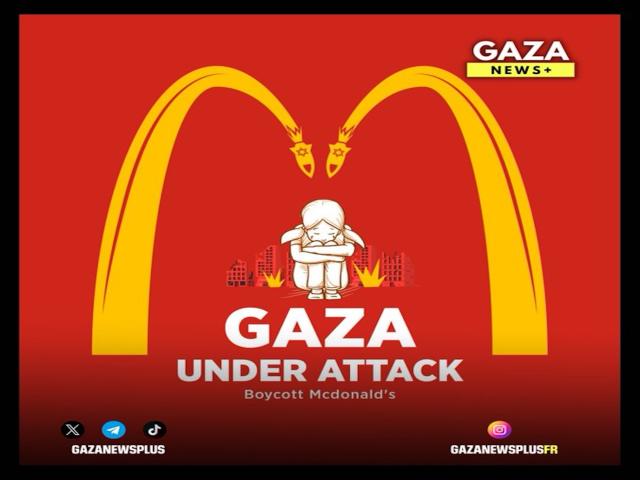US fast food brands, including McDonald’s and KFC, are encountering significant challenges in Asia, the Middle East, and parts of Europe due to boycotts linked to the ongoing Gaza conflict. These boycotts have intensified regional tensions and led to a surge in support for Palestinians, prompting many Muslims to change their consumption habits and reduce demand for American fast food.
McDonald’s Under Scrutiny
McDonald’s became a primary boycott target after social media showed its Israeli franchises providing meals to soldiers following the October 7 attack. In response, McDonald’s franchisee in Saudi Arabia expressed sympathy for Palestinians and donated 2 million Saudi riyals ($533,248) to Gaza relief efforts. Other franchisees in countries with significant Muslim populations also issued statements to stress their political neutrality.
Brandon Guthrie, co-founder and general partner at Shatranj Capital Partners, discussed the broad impact of these boycotts on a Bloomberg Intelligence podcast. Guthrie noted that McDonald’s and Starbucks were particularly affected due to their significant presence in Egypt, Jordan, and Morocco.
⚡️🇹🇷 🇮🇱 A citizen in Mersin set fire to a McDonald's branch.
— The Macro Story (@themacrostory) October 29, 2023
First he broke windows in protest against Israel.
Then he threw a Molotov cocktail into the restaurant.#Turkey #Erdogan #Istanbul #McDonalds#Israel #hamas #Gaza #Palestine #Lebanon #Hezbollah #hamasattack… pic.twitter.com/xZt1VQLlv6
While McDonald’s Corp. has not disclosed the financial impact of the boycotts in the fourth quarter, CEO Chris Kempczinski acknowledged in a February earnings call that the most pronounced impact was in the Middle East, with notable effects in Muslim-majority countries like Indonesia and Malaysia.
KFC and Other Brands Also Affected
KFC franchises in Southeast Asia have also faced boycotts, with over 100 outlets in Malaysia temporarily closing. QSR Brands (M) Holdings Bhd., the Malaysian operator, emphasized that approximately 85% of its 18,000 team members are Muslims in an appeal to its consumer base.
Keep bycott child killers Bycott Macdonalds Bycott KFC #Israel #Rafah #PTIplanned_9thMay #نو_مئی_بہانہ_PTI_نشانہ #نو_مئی_یوم_فسطائیت pic.twitter.com/Uennmf00T9
— SamiShah (@IMSamiiiiiiiii) May 9, 2024
In Pakistan, local water and soft drink brands are gaining prominence over long-established Coca-Cola and Pepsi products, which have been labeled as Israeli-linked in circulated posters. Pakistan Aluminum Beverage Cans Ltd. reported an 11% drop in sales for the quarter ending March 31, attributing it partly to reduced domestic demand due to the Middle East unrest.
North Africa has also seen boycott actions, with KFC’s debut store in Algeria closing temporarily amid nationwide protests in April, as reported by Arab News.
Europe's Varied Response
In Europe, the impact of boycotts varies. AmRest Holdings SE, a major fast food operator in Europe, noted that the Middle East conflict could affect consumer confidence and consumption patterns, though it did not quantify the impact. McDonald’s CEO Kempczinski highlighted that in France, sales drops are significant in areas with high Muslim populations.
⚡️BREAKING:
— Current Report (@Currentreport1) May 2, 2024
Saudi Arabia has stepped up the arrest of citizens for social-media posts related to the Israel-Palestine war
A media figure who said Israel should never be forgiven has been arrested
Another individual calling for a boycott of American fast food restaurants also… pic.twitter.com/bpo5h9FY92
Recovery Prospects
Despite the setbacks, Guthrie indicated that most affected brands are on a recovery trend, though McDonald’s and Starbucks might need until the end of the year to fully recover due to the substantial impact they faced.


